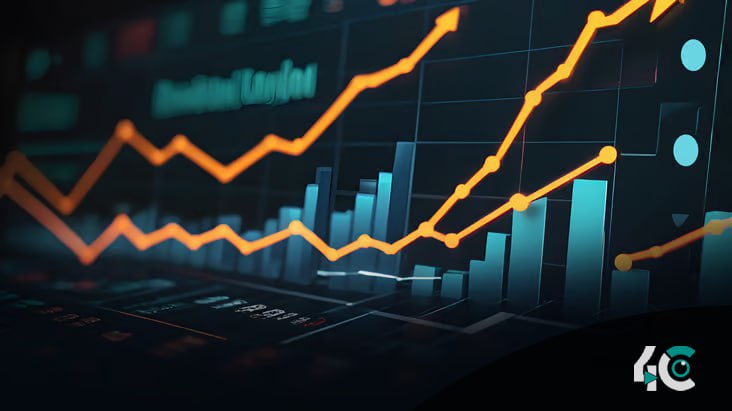In the fast-paced world of finance, staying informed about the latest developments is crucial for both investors and businesses. This article highlights significant trends, shifts, and events that have recently impacted the financial landscape, providing you with a comprehensive overview of what’s new in finance.
Economic Recovery and Market Reactions
The global economy is currently navigating a complex recovery phase following the disruptions caused by the COVID-19 pandemic. As various countries have eased restrictions and vaccination rates increase, economic indicators are showing signs of improvement. For instance, the International Monetary Fund (IMF) has recently revised its global growth forecast, predicting a stronger-than-expected recovery driven by consumer spending and government stimulus packages.
However, markets have been volatile. Investors are closely monitoring inflation rates, which have surged in several regions, prompting central banks to consider tightening monetary policy. The U.S. Federal Reserve has signaled that it may soon begin tapering its asset purchases, which could have significant implications for interest rates and market stability. This uncertainty has led to fluctuations in stock prices, particularly in sectors that are sensitive to interest rate changes, such as technology and real estate.
Stock Market Highlights
In recent weeks, stock markets have experienced a rollercoaster ride. After reaching record highs earlier this year, concerns over inflation and supply chain disruptions have led to corrections in various indices. Notably, tech stocks, which had previously driven market gains, faced increased scrutiny as investors reassessed valuations in light of potential rate hikes.
Conversely, sectors like energy and financials have gained traction, benefiting from rising commodity prices and a favorable interest rate environment. Companies in these sectors have reported strong earnings, buoying investor sentiment. For instance, major banks recently announced robust quarterly profits, reflecting increased lending activity and higher interest margins.
Cryptocurrency Developments
The cryptocurrency market continues to evolve rapidly, with new regulations and innovations shaping its future. Recently, Bitcoin and Ethereum have shown remarkable resilience, reaching new all-time highs amidst growing institutional adoption. Major companies and investment firms are increasingly adding cryptocurrencies to their portfolios, signaling a shift in perception from speculative assets to legitimate investment vehicles.
However, regulatory scrutiny remains a significant concern. Governments worldwide are grappling with how to regulate cryptocurrencies effectively. In the U.S., the Securities and Exchange Commission (SEC) has intensified its focus on digital assets, leading to increased compliance requirements for exchanges and issuers. These developments have raised questions about the future of decentralized finance (DeFi) and the potential for more stringent regulations that could impact market accessibility and innovation.
Read this article also:- https://www.latestbusinessnew.com/led-lighting-perhaps-not-all-fantastic-news/
ESG and Sustainable Investing Trends
Environmental, Social, and Governance (ESG) criteria have become pivotal in shaping investment decisions. Investors are increasingly seeking to align their portfolios with sustainable practices, leading to a surge in ESG-focused funds. Recent reports indicate that sustainable investments are outpacing traditional funds, driven by a growing awareness of climate change and social issues.
Corporate behavior is also under scrutiny, with stakeholders demanding greater transparency and accountability. Companies that fail to meet ESG standards may face backlash from investors and consumers alike. This trend is evident in recent shareholder proposals advocating for more sustainable practices, with a notable increase in votes supporting climate-related initiatives.
Global Trade and Supply Chain Challenges
The global supply chain has faced unprecedented challenges, impacting businesses across various sectors. Disruptions caused by the pandemic, coupled with geopolitical tensions, have resulted in delays and increased costs. Recent reports indicate that shipping delays and shortages of raw materials are affecting production timelines, leading to higher prices for consumers.
To mitigate these challenges, companies are re-evaluating their supply chain strategies. Many are considering diversifying suppliers, investing in technology for better tracking, and even reshoring some production to reduce dependency on overseas manufacturing. These changes are expected to have long-term implications for global trade dynamics and could reshape industries fundamentally.
Interest Rates and Inflation Concerns
As mentioned earlier, inflation is a pressing issue in the financial landscape. Recent data shows that consumer prices are rising at their fastest pace in decades, prompting concerns among policymakers and economists. The surge in inflation is attributed to various factors, including supply chain disruptions, increased consumer demand, and rising energy prices.
Central banks are faced with a difficult balancing act. While maintaining accommodative monetary policies has supported economic recovery, persistent inflation could necessitate a shift toward tighter policies. The Fed’s recent signals about potential interest rate hikes have led to speculation about how these changes will affect borrowing costs and consumer spending.
Tech Innovations and Financial Services
The fintech sector continues to innovate, with new technologies reshaping financial services. Recent advancements in artificial intelligence, blockchain, and digital payment solutions are transforming how consumers and businesses interact with money. For example, the rise of buy-now-pay-later (BNPL) services has gained traction among younger consumers, providing flexible payment options.
Additionally, traditional banks are investing heavily in digital transformation to compete with fintech startups. This competition is driving improvements in customer service and user experience, with banks adopting new technologies to streamline operations and enhance security.
Conclusion
The financial landscape is continuously evolving, shaped by economic recovery, regulatory developments, and technological innovations. Staying informed about these changes is essential for making informed investment decisions and navigating the complexities of the modern financial environment. As we move forward, the interplay between inflation, interest rates, and technological advancements will continue to shape the future of finance, presenting both challenges and opportunities for investors and businesses alike.
In this dynamic landscape, keeping an eye on emerging trends and adapting strategies accordingly will be crucial for success in the ever-changing world of finance. Stay informed on the Finance News and insights by following us at 4cmediaco! Don’t miss out on the latest happenings in the Finance world.

